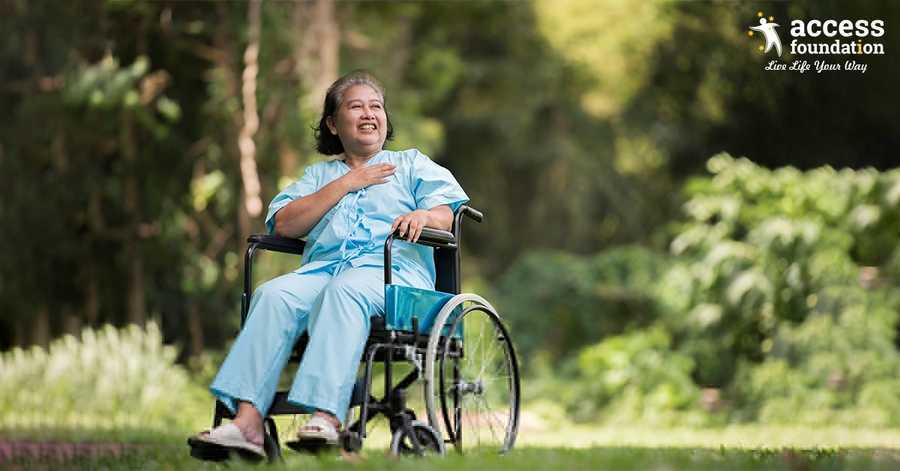
Some of the effective ways of boosting the mental health of people with disability.
Many people are facing some mental or physical disability. These people require extra care and support to live an independent life. If enough care is not provided to them, their disability can lead to long-term mental health concerns that hit hard, especially for the elderly people living with disabilities. Staying fit, mentally strong, and socially active can help boost your mental wellbeing.
People often feel gloomy and depressed when they have some disability because they think that their disability has become a hindrance to their growth. This type of depression is not suitable for their wellbeing, so they must do something about it. There are various mental health tips by which a person can take care of their overall wellbeing if practiced daily.
In this article, we will look at some of the essential and good mental health tips for boosting the mental wellbeing of people living with a disability. Read on to know more
-
1. Follow a routine
It’s important for everyone to follow and stick to a routine to live a healthy life, but there are times when your mental health is as fickle as the weather. You might feel bright and sunny one day and gloomy the next. A great way to keep these mood swings in control is to have a routine and stick to it. Take out time to plan your day-to-day activities and follow the schedule regularly. Having a routine will help you get things done smoothly and keep you calm. Organizing your day gives you a comforting sense of control as well.
-
2. Keep your mind and body active
It might sound challenging to do but trust us, keeping your mind and body active can help you in a great many ways. There are many ways to keep your body and mind active such as exercise, meditation, and yoga being the prime ways. Many studies have shown excellent results of regular exercise and how it helps in boosting self-confidence. Regular exercise also helps in reducing the symptoms of mental health conditions like depression and anxiety disorders.
Thus, start from light exercise initially and keep a habit of exercising daily, and you will see its effects within some days.
-
3. Pick up some hobbies
Picking up new hobbies is excellent for keeping your mind active as well as creative. Engaging in new activities also helps in reducing depression and anxiety. When you create something, you get a sense of accomplishment, and that boosts up your confidence and makes you want to learn new things. Remember that your age or disability shouldn’t stop you from learning new things.
Don’t limit yourself to indoor activities but also engage in outdoor activities such as gardening or fishing if that interests you. Go out, learn new things, have some fresh air and keep learning.
-
4. Socialize more
A good way to secure your mental health is through socialization. Building and maintaining social connections reduce the severity of depression and anxiety. Interacting and mingling with others and building social connections will also make you feel included with other people in your community. Try to know your neighbors and try to spend some time with them.
Socializing is a great way to reduce stress because the more you interact with people, the more connections you make, you feel cheerful and loved. Thus, socializing is a good mental health tip to be followed by people with disabilities.
-
5. Engage in volunteering work
Finding a sense of fulfillment is also an efficient way to ensure your mental wellbeing. You can do this by volunteering for some worthy cause. Volunteering for a cause will give you a sense of fulfillment and help you connect with more people.
There are a lot of causes that need volunteering, and you can become a volunteer and contribute. You can ask your local community leaders about any requirement of the volunteer. Volunteering is a rewarding experience; it will fill your heart with contentment and secure your mental health. Volunteering is also a way to help your community, and therefore, time spent in volunteering is time well spent.
-
6. Stay connected with family and friends
Your family and friends are those who will always love you unconditionally no matter what. Spending time with your loved ones is a great mood booster. The warmth and love you feel with your family are incomparable, and therefore, keeping in touch with your friends and family is the best way to manage your mental health.
If you can’t meet your friends and family, it’s okay. You can stay in touch with them virtually through Zoom, video calls, Skype, Facetime, etc. All you need is an intelligent device with a network connection. Talking with your family is the best therapy out there, so make sure to stay connected with your loved ones.
How can Access Foundation help?
Access Foundation is an NDIS registered disability services provider in West Australia. We focus on providing quality services to people with disabilities to help them improve their lives and become confident. We also help people with disabilities with mental health tips regularly enhance their overall wellbeing and keep them cheerful. We also support the participants to strengthen their social connections and become confident.
To learn more about our services, feel free to contact us.

